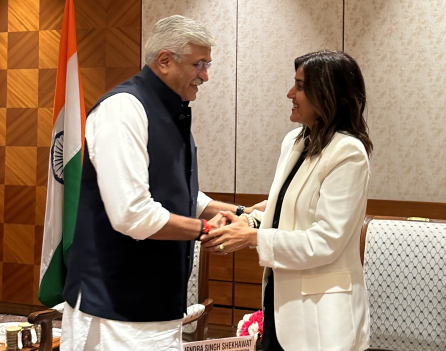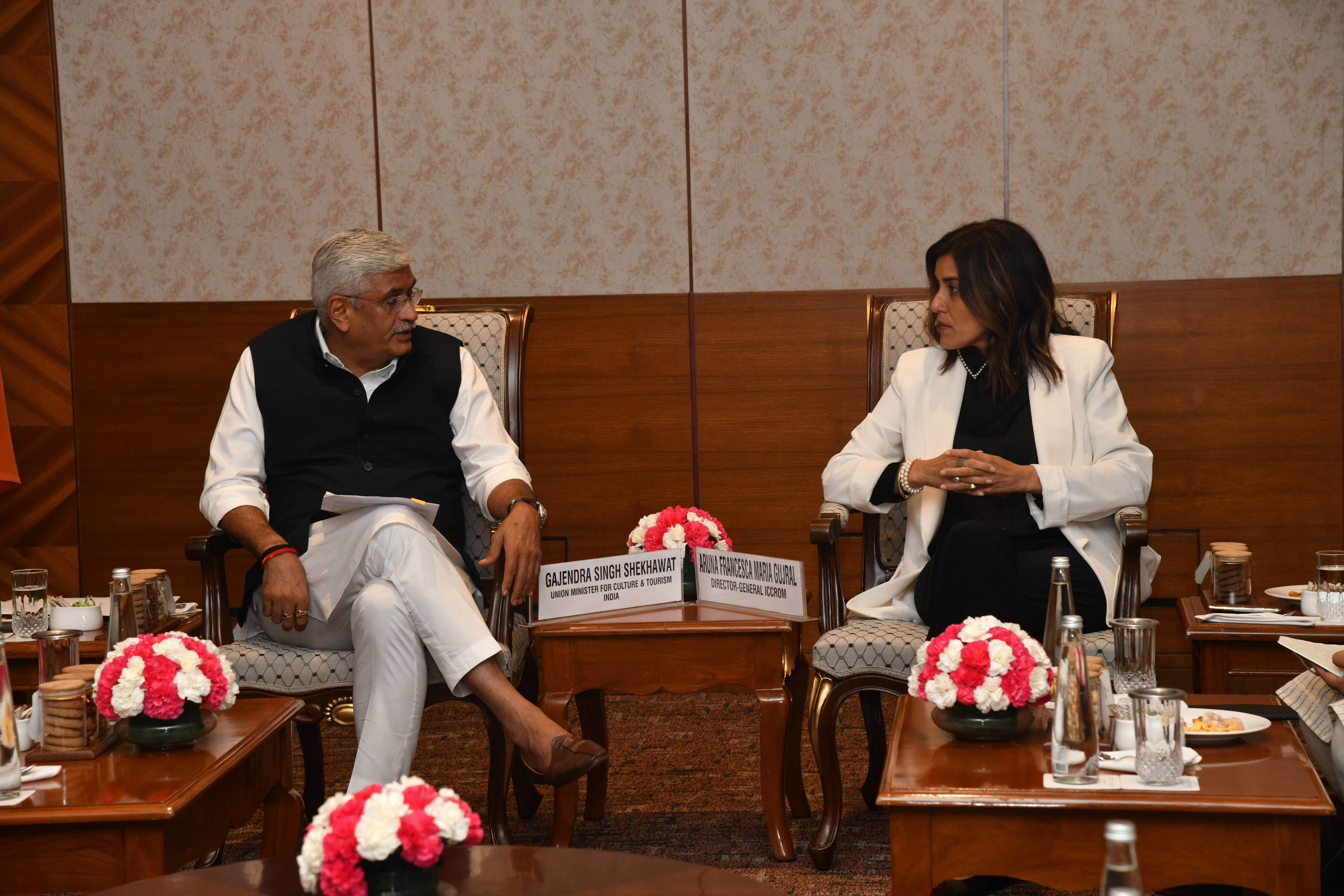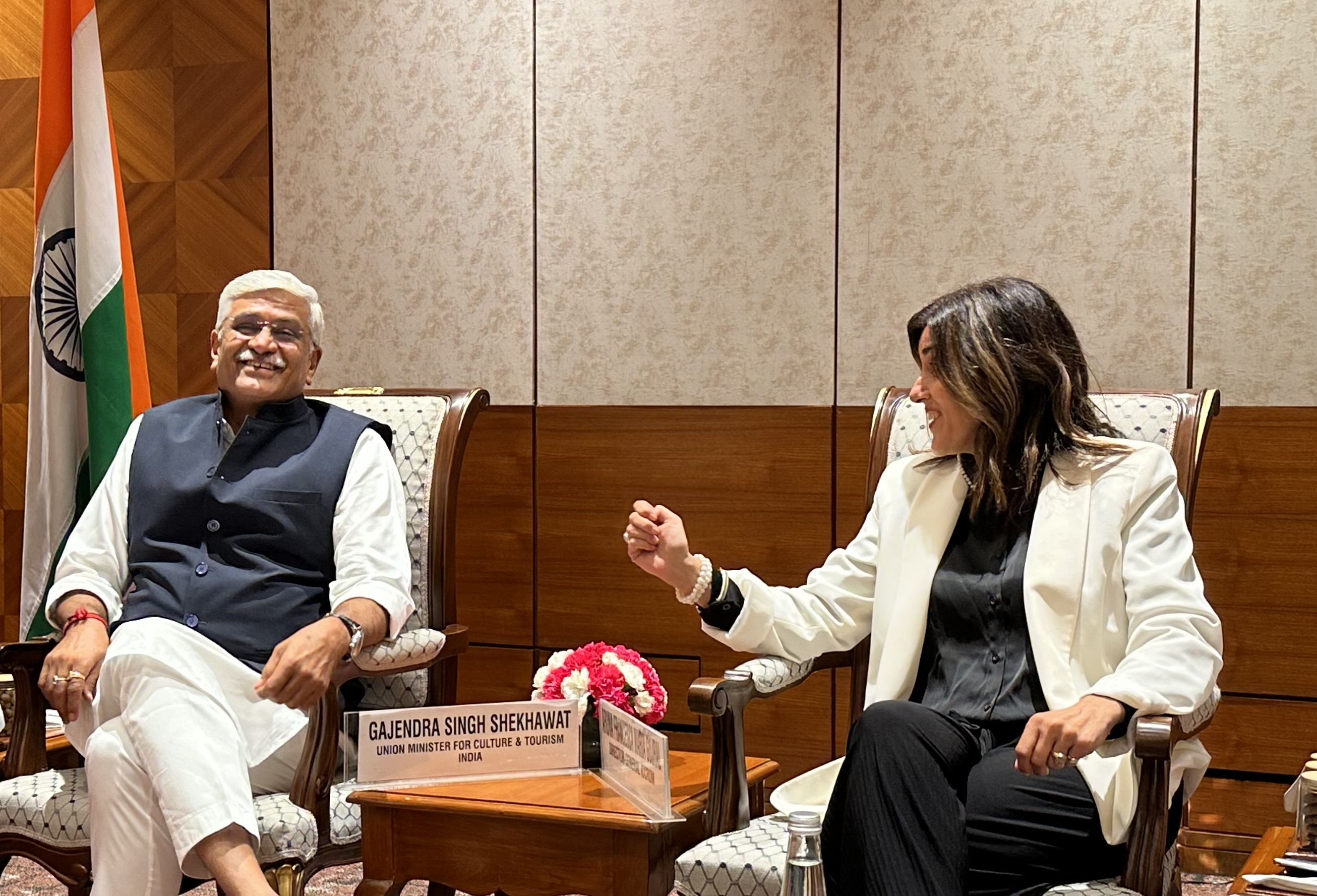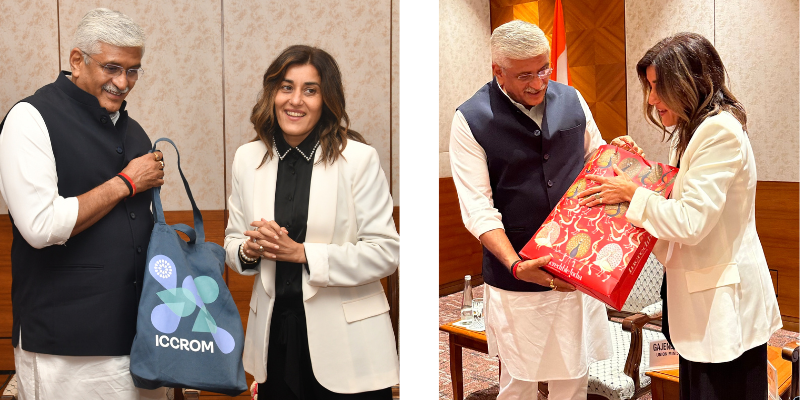Nueva Delhi (India) acogió recientemente la 46ª reunión del Comité del Patrimonio Mundial, marcando un momento crucial en la conservación del patrimonio. En esta ocasión, la Directora General del ICCROM se reunió con el Honorable Ministro de Cultura y Turismo, Shri Gajendra Singh Shekhawat, reafirmando su compromiso conjunto de conservar, salvaguardar y preservar el patrimonio compartido.
Esta significativa reunión, celebrada el 23 de julio de 2024, puso de relieve la importancia de crear vínculos institucionales sólidos y desarrollar estrategias innovadoras para garantizar la resistencia y la sostenibilidad del patrimonio cultural para las generaciones futuras.
Durante su conversación, ambos dignatarios hicieron hincapié en el papel fundamental de la cooperación sostenida entre el ICCROM y la India, donde el patrimonio desempeña un papel vital en el crecimiento socioeconómico y el bienestar.
Estudiaron formas de mejorar las capacidades del territorio para la conservación de bienes culturales muebles e inmuebles, así como del patrimonio cultural inmaterial y en el sector de la economía creativa. Entre los temas clave se incluyeron la conservación de sitios patrimoniales, museos, bibliotecas y archivos en la gestión de catástrofes y cómo hacer frente a los efectos del cambio climático. Los socios indios clave para llevar adelante este marco general de colaboración entre el ICCROM y el Ministerio de Cultura y Turismo de la India serán, entre otros, el Servicio Arqueológico de la India (ASI) y el Museo Nacional Yuge Yugeen Bharat.
Esta iniciativa conjunta tendrá como objetivo introducir cambios transformadores en las vidas y los medios de subsistencia de la población, fomentando la conservación del patrimonio y la resiliencia como motor del desarrollo sostenible.
En la reunión también se subrayó la importancia de invertir en el desarrollo de capacidades para la conservación del patrimonio, considerándolo una responsabilidad tanto para con las generaciones presentes como para las futuras. Ambos líderes expresaron su firme compromiso de mejorar esta colaboración, reconociendo que la protección y conservación del patrimonio compartido es crucial para la sostenibilidad cultural.
La asociación entre el ICCROM y el Ministerio de Cultura y Turismo de la India representa un paso importante hacia una mayor cooperación en la conservación del patrimonio, no sólo para preservar el rico legado cultural de la India, sino también para situar al país como referencia en el Sur Global, demostrando cómo tales esfuerzos pueden reportar importantes beneficios globales.




